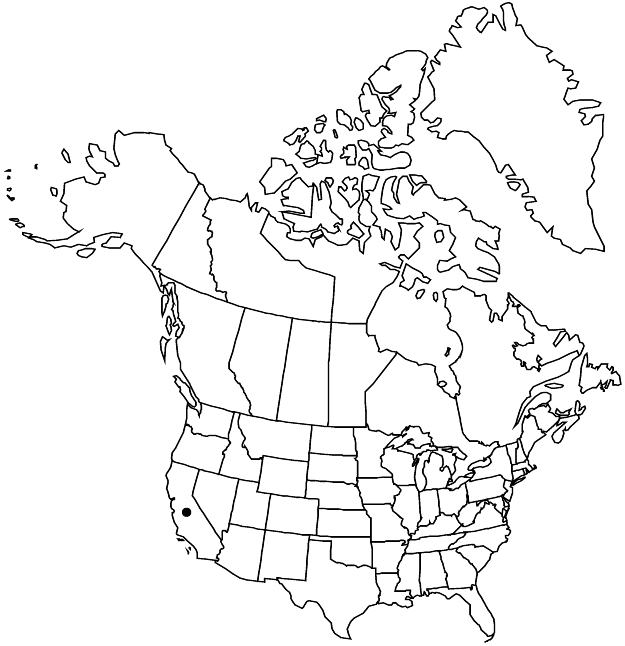Chorizanthe leptotheca
Ann. Missouri Bot. Gard. 21: 61. 1934.
Plants erect to spreading, 0.5–3(–3.5) × 0.5–3(–5) dm, thinly pubescent. Leaves basal; petiole 1–3(–4) cm; blade oblong to oblong-ovate, 0.5–2(–3) × 0.3–0.5(–0.7) cm, thinly pubescent adaxially, usually densely tomentose adaxially. Inflorescences mostly flat-topped and openly branched, usually reddish; bracts soon deciduous, 2, occasionally leaflike at proximal nodes and similar to proximal leaf blades only more reduced, short-petiolate, ovate, 0.3–0.4 cm × 2–3 mm, otherwise sessile, linear and acicular, often acerose, 0.1–0.3 cm × 0.7–1 mm, awns straight, 0.5–1 mm. Involucres in congested clusters with 1 at node of dichotomies, reddish, cylindric, not ventricose, 3–4 mm, not corrugate, without scarious or membranous margins, thinly pubescent; teeth spreading, unequal, 0.7–1.5 mm with longer of 3 longest ones more erect than 3 other shorter and less-prominent ones, awns uncinate, 0.5–1 mm. Flowers long-exserted; perianth rose to red, infrequently with white lobes, cylindric, 4.5–6 mm, pubescent; tepals connate ca. 1/2 their length, dimorphic or sometimes monomorphic, narrowly oblanceolate, apex rounded, those of outer whorl slightly broader and occasionally longer than those of inner whorl; stamens 9, mostly included; filaments distinct, 4–6 mm, glabrous; anthers pink to red, ovate to oblong, 0.5–0.6 mm. Achenes brown, lenticular, 3–4 mm. 2n = 38.
Phenology: Flowering May–Aug.
Habitat: Sandy to gravelly flats and slopes, grassland and chaparral communities, pine-oak woodlands
Elevation: (300-)600-1600(-1900) m
Distribution

Calif., Mexico (Baja California).
Discussion
Chorizanthe leptotheca is found in the foothills of the San Bernardino Mountains of San Bernardino County southward along the eastern edge of the Santa Ana Mountains, and through the San Jacinto and Santa Rosa mountains of Riverside County into the mountains of central San Diego County. The species is also found in north-central Baja California.
Ramona spineflower is clearly related to Chorizanthe staticoides, but that species occurs to the west of the range of C. leptotheca and the two are not known to be sympatric.
Selected References
None.